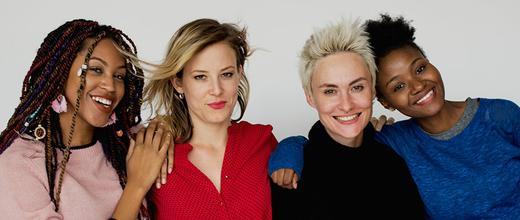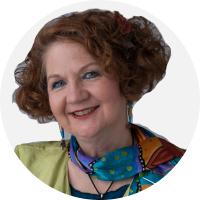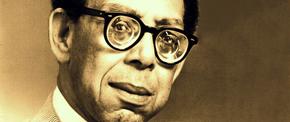The views expressed in our content reflect individual perspectives and do not represent the authoritative views of the Baha'i Faith.
With the recent allegations of sexual misconduct, the extraordinary response to the #MeToo movement, and Time Magazine’s decision to make the “Silence Breakers” its “person” of the year, a new conversation emerges in our general society.
As painful, embarrassing, incriminating, divisive, and consequential as the fallout is, we might look at the core issues at stake: basic human rights, respect, gender equality, and healing from trauma and oppression.
Over 100 years ago, Abdu’l-Baha, son of Baha’u’llah, the prophet and founder of the Baha’i Faith, addressed the need for a change in the power balance between genders:
The world in the past has been ruled by force, and man has dominated over women by reason of his more forceful and aggressive qualities both of body and mind. But the balance is already shifting—force is losing its weight and mental alertness, intuition, and the spiritual qualities of love and service, in which woman is strong, are gaining ascendancy. Hence the new age will be an age, less masculine, and more permeated with the feminine ideals—or, to speak more exactly, will be an age in which the masculine and feminine elements of civilization will be more evenly balanced. – Abdu’l-Baha, quoted by J.E. Esselmont in Baha’u’llah and the New Era, p. 156.
He also compared the two genders to the wings of a bird:
The world of humanity has two wings—one is women and the other men. Not until both wings are equally developed can the bird fly. Should one wing remain weak, flight is impossible. Not until the world of women becomes equal to the world of men in the acquisition of virtues and perfections, can success and prosperity be attained as they ought to be. – Abdu’l-Baha, Selections from the Writings of Abdu’l-Baha, p. 302.
So maybe the recent focus on revealing past indiscretions and crimes and readjusting our concepts of equity and justice relate to the flight of the “bird” of humanity and how mired it has been in the mud.
This important topic relates to our individual sense of self, to family life, our relations with others, our connections in the work place, and ultimately to balance in the world—and even the possibility of world peace.
We are born a gender. Some people now blur the lines—I teach a few college students who wish to be known as the opposite gender or as a person of no gender. Some people even choose to change their gender. But most of us accept that we are born a female or a male, and with that comes societal expectations. Yet we live in a time when these expectations—and the demarcation of gendered roles—are changing. Tremendous advances have been made regarding seeing gender as complementary and not competitive or hostile. Opportunities for women and positions for leadership have expanded. (One recent inspiring example: Simone Askew’s appointment as the first African American woman to earn the role of First Captain, leader of the Corps of Cadets at West Point—at the age of 21! She takes on a role previously occupied by General Douglas MacArthur and other four-star generals.)
All of us have stories—positive, negative, sometimes horrific—that relate to gender. Years ago on a plane I sat next to an aggressive male passenger who demanded my attention as if he were entitled to it as a male; I felt frozen, captured, oppressed. Even casual conversation can be invasive, reflecting a subtle or blatant power imbalance, and we all have things to learn about navigating or perhaps witnessing such instances.
On another occasion, at a Baha’i event where we were called upon to place cut-out fruits representing the various committees on which we had served upon a six-foot drawing of a tree, I placed my fruit for the “Advancement of Women” committee as high as I could reach. The man who followed me slammed his fruit above it, in a rather obvious gesture of one-upmanship. It was hard to sleep that night. Inwardly, I was so distressed I decided I never wanted to speak to that man again.
But the very next day, I found myself alone with him in the living room of the Baha’i Center. I didn’t know what to say, but he did. “I am so sorry about how I behaved yesterday. I don’t know why I did that, and I realize how hurtful it must have been.” We spoke sincerely and became real friends. This came as a surprise, given the intensity of emotions I had experienced from the incident. He later invited me to speak to his company on the subject of gender equality and perform monologues about several women in history!
These are mild examples I feel safe in sharing—from years ago. Though mild, they still carry a reminder of deep discomfort—and there are many more painful memories. Such memories are often triggered by the public evidence of cases such as the Michigan State University doctor charged with abusing more than 150 young women, initially revealed by one young woman who was not believed until several others came forth.
Our culture is learning to listen to women and regard their experiences as truthful and valuable, as well it should—finally.

















Comments
Sign in or create an account
Continue with Facebookor